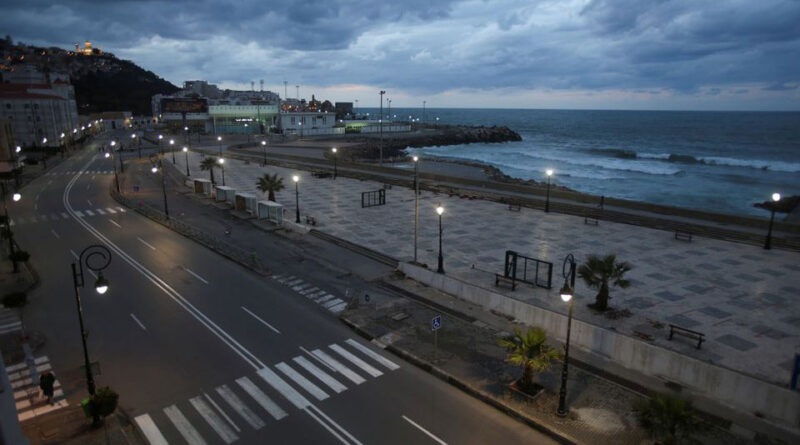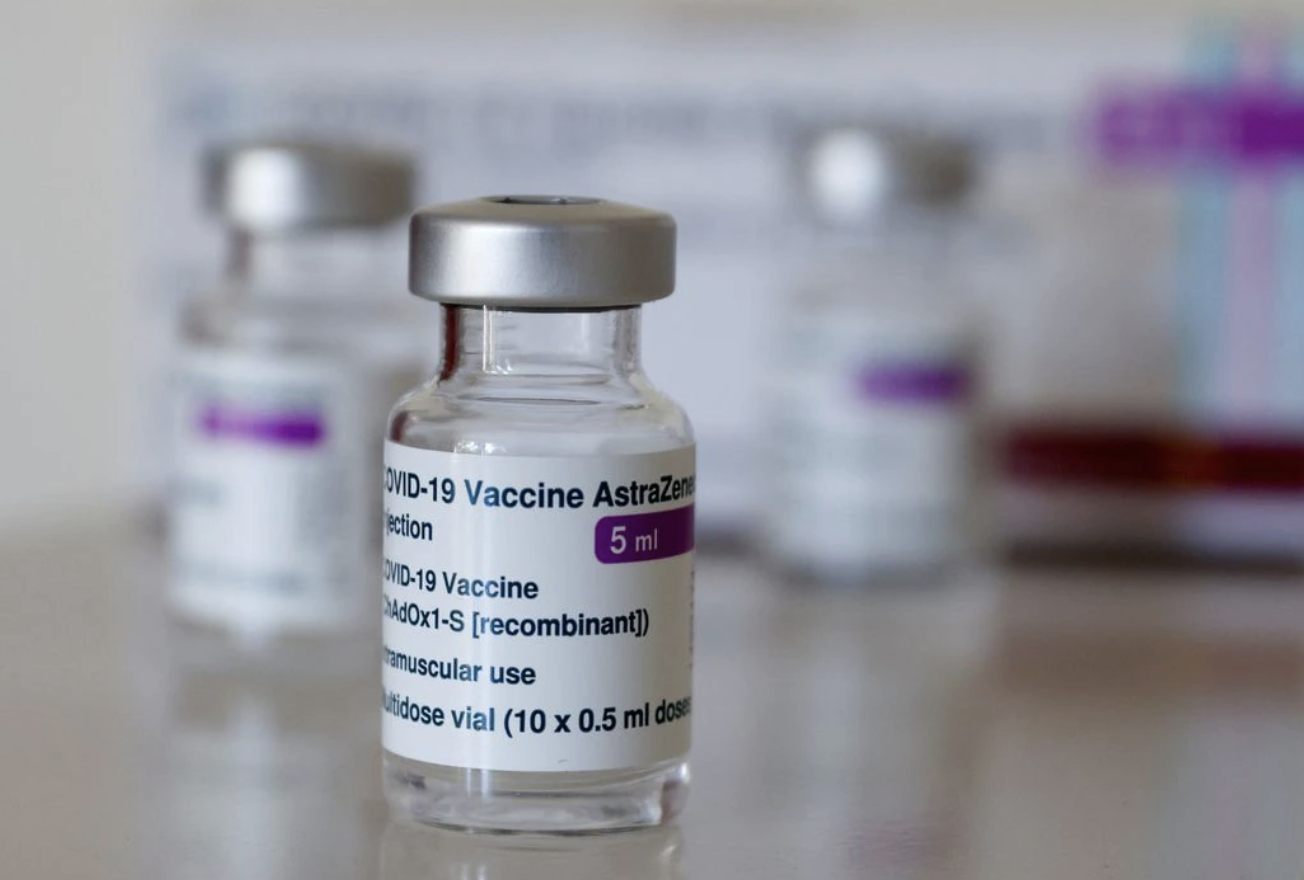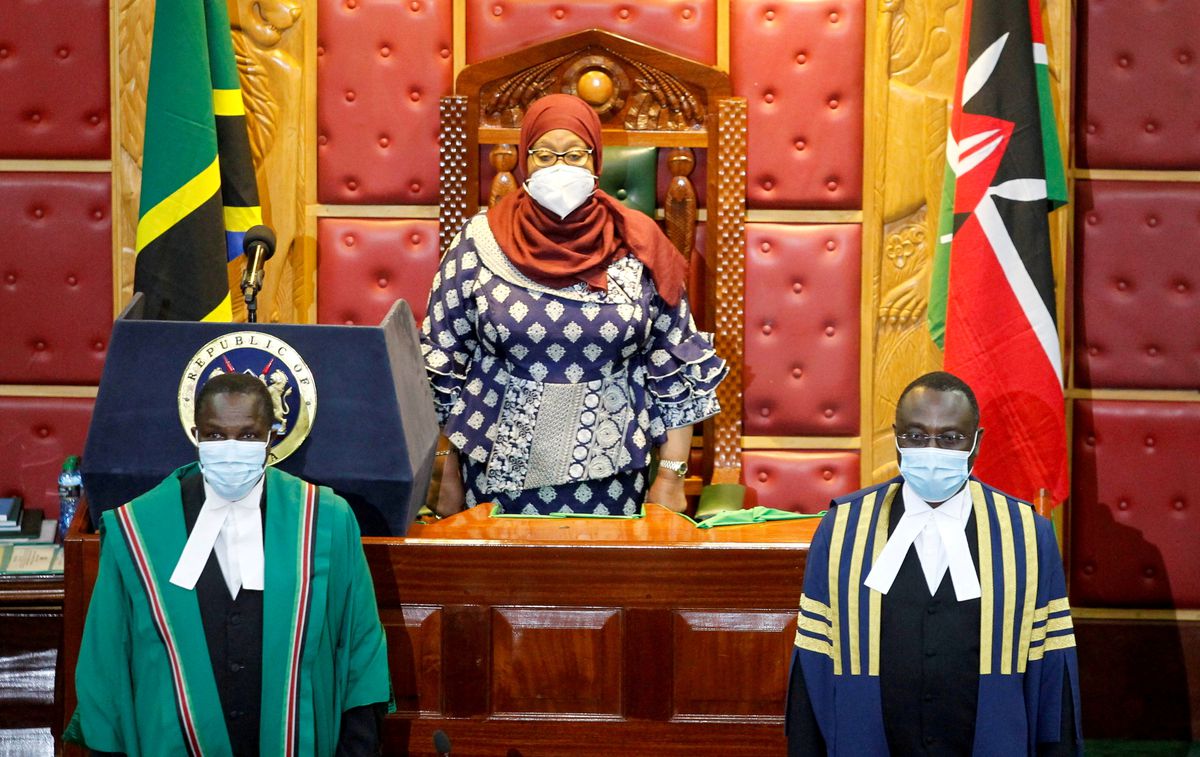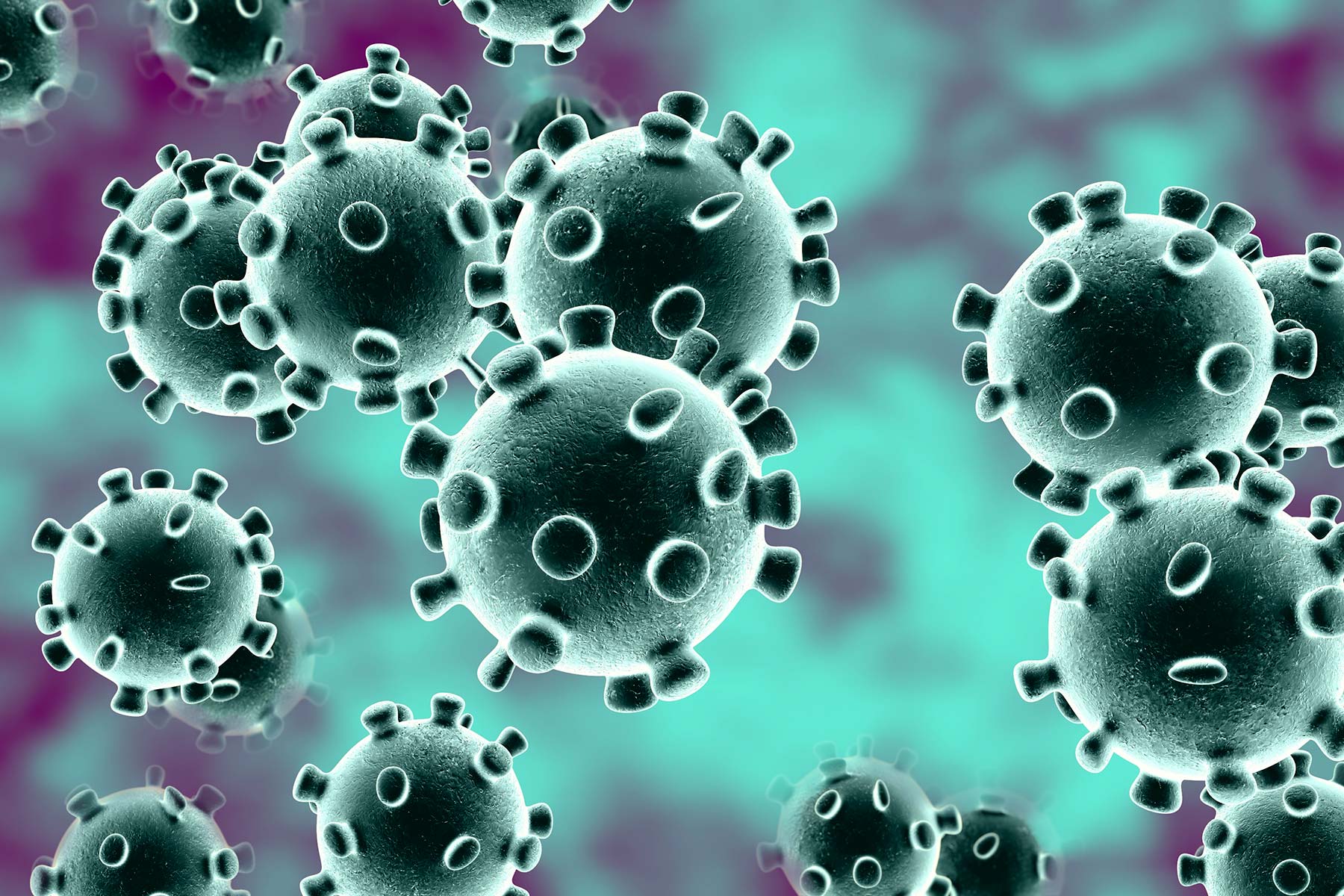ALGERIA will impose strict health measures on passengers when it partially resumes international flights next month, the prime minister’s office said yesterday.
The North African country last week said it would reopen air borders on June 1, but with only five flights a day from and to three local airports.
Passengers must have a negative result for COVID-19 from an RT-PCR test dated less than 36 hours before the date of travel to Algeria, the prime minister’s office said.
All passengers would be quarantined for five days in hotels at their expense, and the quarantine would be extended to 10 days for those who test positive for COVID-19 at the end of the first five days, it added.
“These conditions must be met before boarding,” it said in a statement.
Algeria closed its borders in March 2020, as the coronavirus pandemic spread. It resumed domestic flights in December last year. It has so far reported 127,107 coronavirus cases, including 3,426 deaths.
Source - Thomson Reuters Foundation
LILONGWE (Reuters) - Malawi on Wednesday destroyed 19,610 doses of AstraZeneca COVID-19 vaccines that expired 18 days after arriving, despite assurances from the African Union (AU) and World Health Organisation (WHO) that the vaccines were safe until mid-July.
A batch of 102,000 vaccines arrived on March 26, under an initiative by the AU and WHO, and they expired on April 13, leaving less than three weeks for them to be used. Malawi managed to deploy about 80 percent of them by that time.
John Nkengasong, director of the Africa Centres for Disease Control and Prevention (Africa CDC), part of the AU, told a news conference late last month that the shots could be used until July 13, based on a further analysis conducted by manufacturers of the Serum Institute of India (SII).
He and the WHO also urged African countries not to waste vaccines donated to them.
However, the Malawian government said it would not give expired vaccines to its citizens.
"We are destroying (them) because, as government policy... no expired vaccine has ever been used," said Health Minister Khumbize Chaponda, at Kamuzu Central Hospital in the administrative capital Lilongwe.
She then threw the shots, which were wrapped in red plastic bags, into an incinerator, causing a cloud of dark smoke to billow from its chimney.
"On behalf of the government I assure all Malawians that no one will be given an expired COVID vaccine," she said.
A CDC Africa official declined to comment.
SII did not immediately respond to a request for comment. India's drug regulator in March allowed the SII-produced AstraZeneca vaccine to be used for up to nine months from its manufacture date, as opposed to the earlier six months.
South Sudan has set aside 59,000 doses supplied by the AU and is not using them because of the same expiration issue.
Malawi's health ministry said the country had administered 335,232 vaccine doses as of May 18, and recorded 34,231 COVID infections and 1,153 deaths.
African countries have struggled to secure enough COVID-19 vaccines to roll out mass immunisation. Many rely on handouts from the global vaccine scheme COVAX, which is co-led by the WHO and partners including the Gavi vaccines alliance.
Our Standards: The Thomson Reuters Trust Principles.
Experts appointed by Tanzania's new president have declared COVID-19 vaccines to be effective and recommended joining the COVAX facility that shares the inoculations, in the latest sign suggesting official scepticism about the pandemic is waning.
The recommendations by a coronavirus committee formed in April by President Samia Suluhu Hassan were given by the chair of the group at a press conference at State House in Dar es Salaam on Monday.
In its other recommendations, the experts proposed the government publish accurate statistics on the disease and urged that any alternative medicines pass scientific standards.
It was not immediately clear what the president would do with the recommendations. Hassan spoke at a separate public event later on Monday and did not mention COVID-19. read more
A government spokesman did not immediately respond to a request from Reuters for comment.
The recommendations are the latest sign of the government's increasingly proactive approach to tackling the disease following the death in March of President John Magufuli, who downplayed the disease. read more
"The government should do mass mobilisation, preparation to receive vaccines, storage, transportation, and people should be free to be vaccinated or not," committee chair Said Aboud said in a televised speech.
Joining the COVAX vaccine-sharing facility enables poorer countries like Tanzania to secure doses for their citizens. All but a handful of developing countries have signed up for the facility amid the global pandemic
Frontline workers, people over 50, people with comorbidities, security workers, and travelers going abroad should get their shot first, Aboud said.
In January, Magufuli had warned citizens against COVID-19 vaccines and urged them to instead fight the virus using at-home remedies like steam inhalation. read more
His successor Hassan has taken a different approach; encouraging citizens to wear face masks, instituting new restrictions on international travel, and forming the COVID-19-focused committee.
Under Magufuli's tenure, Tanzania also stopped reporting coronavirus data in May 2020.
"The government should provide accurate statistics on COVID-19 to the public and WHO for the public to get accurate information from authorities and respect agreements and regulations that the country has ratified," Aboud said.
The committee also recommended that the finance ministry perform an assessment to measure the impact of COVID-19 on the economy and formulate plans to boost growth.
Our Standards: The Thomson Reuters Trust Principles.
South Africa is set to expand its nationwide rollout of Covid-19 vaccinations as the country braces for a potential third wave of the coronavirus pandemic that officials fear could materialize in the coming weeks.
Beginning Monday, South Africans aged 60 and older will be able to receive the vaccine as part of the second phase of a rollout that began in February. To date, roughly 455,000 healthcare workers in the country have received the Covid-19 shot created by the pharma giant Johnson & Johnson, which the country was the world’s first to administer. A broadening of the program for vaccinating healthcare workers sent hundreds of such workers and others to vaccine sites this week in search of shots.
The jabs slated to start Monday will be administered with a dose of urgency. Cases of Covid-19 have increased in South Africa recently after remaining relatively flat since a second wave of the pandemic ended in February. Over the past seven days, the country has recorded a 46% uptick in cases nationwide, though the rise comes off a low base. South Africa now has roughly 23 cases of infection for every 100,000 people, compared with 90 cases per 100,000 in the U.S. and about 200 cases per 100,000 in India.
Most cases of Covid-19 in the country are now caused by a variant known as B.1.351, which first emerged in South Africa in December and has since spread to at least 68 countries. But highly infectious variants first discovered in England (B.1.17) and India (B.1.617) have been detected in the country as well.
Officials say they are tracking the variants closely. “We have not as a country reached a resurgence threshold, though some districts in the country are fast approaching the threshold,” the national health department said on Wednesday. “We want to assure South Africans that we have not yet hit the third wave, however we are at risk, and we hence need to be on heightened vigilance as a country.”
Some experts have reportedly urged the government to tighten lockdown restrictions, which since the start of the pandemic have taken a significant toll on South Africa’s already struggling economy. The country experienced the biggest drop in economic activity last year than it has in any year since 1946.
For its part, the health department urged continued adherence to social distancing and other public-health protections. “If you offer the virus an opportunity, it spreads,” notes Dr. John Nkengasong, director of the Africa Centers for Disease Control and Prevention, who says he has “no doubt that South Africa will do the right thing to put in place appropriate measures to contain the virus” while the rollout gets going.
South Africa has seen the highest number of Covid-19 cases in Africa, with more than 1.6 million positive cases, including nearly 55,000 deaths, since the start of the pandemic. Estimates of so-called excess deaths in South Africa over that period suggest the total could be nearly three times as high.
Recovering from vaccine stumbles
The broadening of South Africa’s vaccine rollout follows several setbacks in the program so far. In February, South Africa shelved plans to administer the Covid-19 vaccine developed by AstraZeneca and the University of Oxford after studies suggested it provided only minimal protection against the B.1.351 variant.
Health officials later paused vaccinations with the J&J vaccine when the US Food and Drug Administration temporarily suspended its use after six women who had received the vaccine in the US experienced unusual blood clots. Vaccinations with the J&J jab have since resumed in both countries.
South Africa will draw for this next phase of the rollout from supplies of both the J&J vaccine and the vaccine developed by Pfizer and BioNTech. The government has purchased 31.2 million doses of the J&J jab and 30 million doses of the two-shot Pfizer/BioNTech vaccine; enough doses in total to reach the country’s target of vaccinating 45 million people—roughly two-thirds of South Africa’s population—by February 2022.
Besides older adults, vaccinations in the second phase will cover essential workers, residents of congregate-living settings, and adults with health conditions that put them at risk of serious illness from the coronavirus, before broadening to include people over 40. A third phase of the rollout, slated to start later this year, would open Covid-19 vaccinations to everyone 18 and older.
The rollout in South Africa, which to date has vaccinated less than 1% of its population, roughly parallels the pace in neighboring Botswana and Namibia, but lags the rollout in Zimbabwe, which has vaccinated about 2.4% of its population, and Morocco, which leads the continent with nearly 15% of its population vaccinated.
Experts emphasize that widespread vaccination points the way out of the pandemic. “The problem with public health measures is that you cannot use that in winning a pandemic,” says Dr. Nkengasong. “You have to bring in vaccines aggressively to bring it down.”
—Carlos Mureithi contributed reporting.
This post has been updated with the number of healthcare workers vaccinated in South Africa so far.
Source - Quartz Africa




